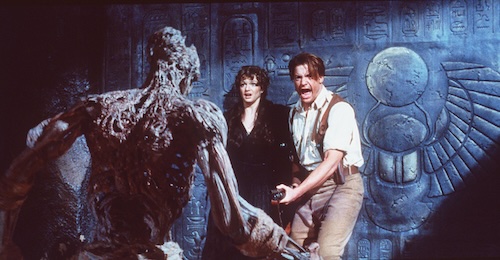
Nostalgics rejoice: a host of classic films are returning to Cineworld screens as part of our 1999 Season. Enjoy unforgettable films for just £5 per ticket and revisit the pre-wireless era when the Millennium Bug occupied us and mobile phones were an exotic commodity.
It was a period of imaginative, crowd-pleasing filmmaking, and we're delighted to be showing The Mummy. Brendan Fraser shot to stardom off the back of this goofy, creepy, high-spirited action-horror salute to the Universal Studios monster of old.
Here's why you shouldn't miss The Mummy at Cineworld.
1. It feels more like Indiana Jones than the recent Indiana Jones movies
Likable archetypal characters, quick-witted humour, blazing action and moments of genuine terror – we're referring to Indiana Jones (primarily the first three movies) but we could also be referring to The Mummy.
It's a film that distills the spirit of Steven Spielberg's original Indy film Raiders of the Lost Ark (1981), putting its foot to the floor from the very first scene and never letting up. Like Raiders, it's also not averse to drawing attention to its own silliness – Spielberg's film was not intended as high art but an homage to the B-movie serials he watched in his youth, and The Mummy channels this same sense of charming innocence.
The heroes are unashamedly heroic, the baddies are undeniably bad, the locations are exotic and the danger real. Given The Mummy was made in 1999, there's also an appreciable level of practical craft to go with the relatively nascent CG effects, giving the action more of a grounded, tangible punch. In that sense, aesthetically, The Mummy owes more to the first three Indiana Jones films than the most recent two.
2. The performances are brilliantly spirited
The Mummy is a frenetic ride from start to finish and sports several underappreciated performances that locate sharp comic timing amid the mayhem. The film was primarily a showcase for Brendan Fraser who until this stage was known for both broad comedies (1993's Encino Man) and the occasional acclaimed drama (1998's Gods and Monsters).
Fraser manages to rise above the level of Indiana Jones knock-off via his own gruff patina of deadpan stoicism. His character Rick O'Connell's often nonchalant reaction to the film's supernatural threats makes it even funnier when he is overt in his responses, famously during the scream sequence when he first spots the mummy.
Keeping in lockstep is Rachel Weisz as the bookish Evelyn who was then pre-Oscar and in the early stages of her Hollywood career. She shares genuinely sweet chemistry with Fraser and is adept at both verbal and physical comedy (the whole drunk "I am a librarian" scene is still hilarious).
John Hannah deploys his Four Weddings and a Funeral comic chops to portray Evelyn's bumbling brother Jonathan and often scores the biggest laughs. Together, Fraser, Weisz and Hannah help ground the movie with a pleasing sense of self-aware silliness while Arnold Vosloo goes the other way, taking his role as the undead Imhotep very seriously and lending the film a genuine sense of menace.
3. Writer-director Stephen Sommers expertly melds horror and humour
The Mummy skirts the divide between fist-pumping exhilaration and hide-behind-your-hands terror in the manner of the classic Indiana Jones films. (We're thinking Raiders, Temple of Doom and Last Crusade here.) That said, Stephen Sommers had past form in this area: before The Mummy he helmed the live-action version of The Jungle Book (1994) and the enjoyably disposable Aliens-meets-Titanic vehicle Deep Rising (1998).
The original Indy films showed a particular glee in their ability to act as horror films by stealth, walking the line between what was appropriate for kids and what wasn't. Admittedly, Temple of Doom went way over said line with its sacrificial scene that helped spawn the PG-13 rating in the USA, but the first and third movies leavened the menace via Harrison Ford's iconic central performance and the chemistry he shared with his co-stars.
The Mummy bottles this spirit joyously, and arguably does it better than either Kingdom of the Crystal Skull or Dial of Destiny. It's scary, but enjoyably scary, and the chills are always offset by likeable, broadly rendered characters, primarily Brendan Fraser's gung-ho Rick O'Connell whose heroism is never in doubt, and who is all but guaranteed to save the day in classic B-movie fashion.
4. It's a gorgeous visual love letter to Egypt
Remember adventure movies that were shot on location instead of a green screen studio? The Mummy was, in many ways, a last hurrah to this style of filmmaking, immersing us in sand-swirling Egyptian antiquity.
The movie was actually shot on location in Morocco but is a feast for the senses nonetheless, particularly during the camel ride to Hamunaptra sequence that makes beautiful use of the multifaceted desert light and the shadows cast by the characters.
Practical sets and CG augmentation help extend the movie's period flavour but the moments you'll remember are the ones where it's obvious that the actors are physically planted in the environment. Because they're living it, we're living it as well, and for a movie sporting a reputation as a cheapie B-movie throwback, it's frequently luscious to look at.
5. Jerry Goldsmith's score brings the thunder
Jerry Goldsmith was the king of the ethnically nuanced action score, and indeed the action score generally. Goldsmith's list of achievements is too vast to mention here but when invoking The Mummy, it's perhaps appropriate to cite his African-flavoured efforts on The Wind and the Lion (1975) and The Ghost and the Darkness (1996).
The Mummy owes a debt to both of those scores, resonating with thunderous percussion, the aggressive brass chords for which Goldsmith was famed, and a host of strong thematic ideas that musically anchor the entire film in a sense of empathy.
From the threatening brass glissando for Imhotep to the sweet, string-led slow-burn for the relationship between Rick and Evelyn, Goldsmith's work is not only emblematic of his own style but a lost art of film scoring that wasn't afraid to be self-consciously operatic or expansive.
Goldsmith passed away in 2004 and his influence is very much missed, but his legacy lives on via scores such as The Mummy.
Click the link below to book your tickets for The Mummy. It screens at Cineworld on July 5th as part of our 1999 Season.
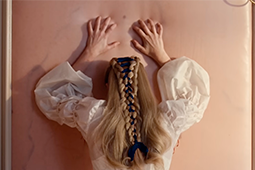
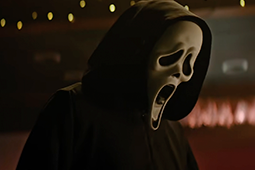
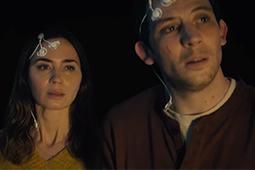
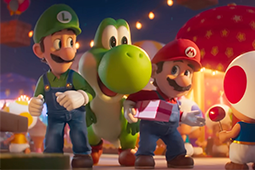
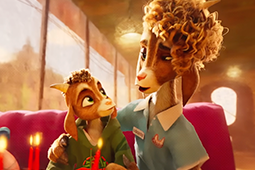
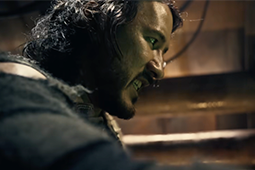
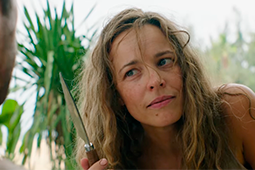
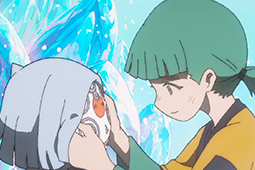
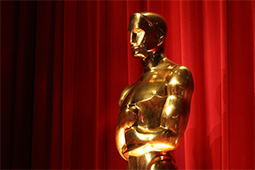
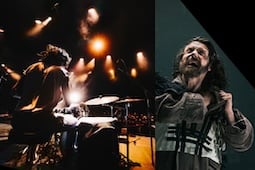
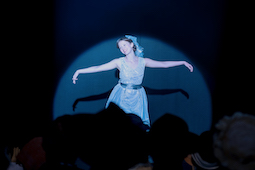


.jpg)
.png)





